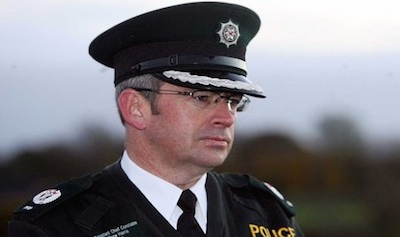
The British government has been accused of frustrating the release of files that could expose a state-sponsored programme of assassination in the north of Ireland.
A lawyer for the family of a Belfast father-of-three shot dead by loyalist paramilitaries made the claim during a coroner’s court hearing ahead of a new inquest into the death.
Gerard Slane was shot dead by the unionist paramilitary UDA at his home in west Belfast in 1988.
Barrister Fiona Doherty said the extent of collusion between loyalists and the British state forces in the murder was “as bad as it gets” as she demanded an explanation for delays in disclosing police and military files to the inquest.
“This was a state-sponsored assassination programme going on here of which Gerard Slane was an entirely innocent victim,” she told coroner Suzanne Anderson at a preliminary hearing in Belfast Coroner’s Court.
Ms Doherty was responding to the revelation that it will likely take at least six more months before sensitive PSNI and British military files are handed over to the coroner.
‘TRIAL’
Similar concerns were voiced at another inquest hearing into the deaths of six nationalists shot dead by the Crown forces around Lurgan and Armagh in 1982. At the Laganside Court, it emerged that the PSNI has adopted a different approach to disclosing information for the use in criminal trials compared with inquests.
In an unusual outburst, Coroner John Leckey demanded a written explanation for the disparity.
He said: “There has never been an answer as to why I am being treated differently to the PPS. I want to make it plain, I expect chapter and verse.”
The North’s deputy chief constable Drew Harris (pictured), who was summoned to the court to explain the delays, acknowledged there was a “fear” that inquests were a way of putting ex-soldiers and PSNI police on trial. But he denied allegations the PSNI had exploited a ‘redaction’ process, ostensibly intended to protect the identity of certain Crown force members and agents, to slow legal proceedings.
Karen Quinlivan QC, representing three of the families, said the PSNI had engaged in an unnecessarily cautious redaction process and described it as illogical that information contained in a “best-selling book” was not considered to be in the public domain and had been blanked out of material disseminated to the legal teams.
‘CONTEMPT’
Meanwhile, the British Ministry of Defence has also been accused of showing “contempt” for an inquest investigating British Army killings of ten people in Belfast.
The victims, which included a Catholic priest and mother of eight, died in a British army operation that saw soldiers open fire on republican strongholds in west Belfast following the introduction of internment.
During another preliminary coroner’s court hearing, Karen Quinlivan, representing families whose loved ones were killed in three days of shooting in Ballymurphy in 1971, heavily criticised the MoD for failing to provide files to the court within set timeframes.
The hearing in Belfast was also informed there are set to be “significant” delays in the disclosure of both MoD and police documents related to the Ballymurphy massacre.
![[Irish Republican News]](https://republican-news.org/graphics/title_gifs/rn.gif)
![[Irish Republican News]](https://republican-news.org/graphics/title_gifs/harp.gif)

